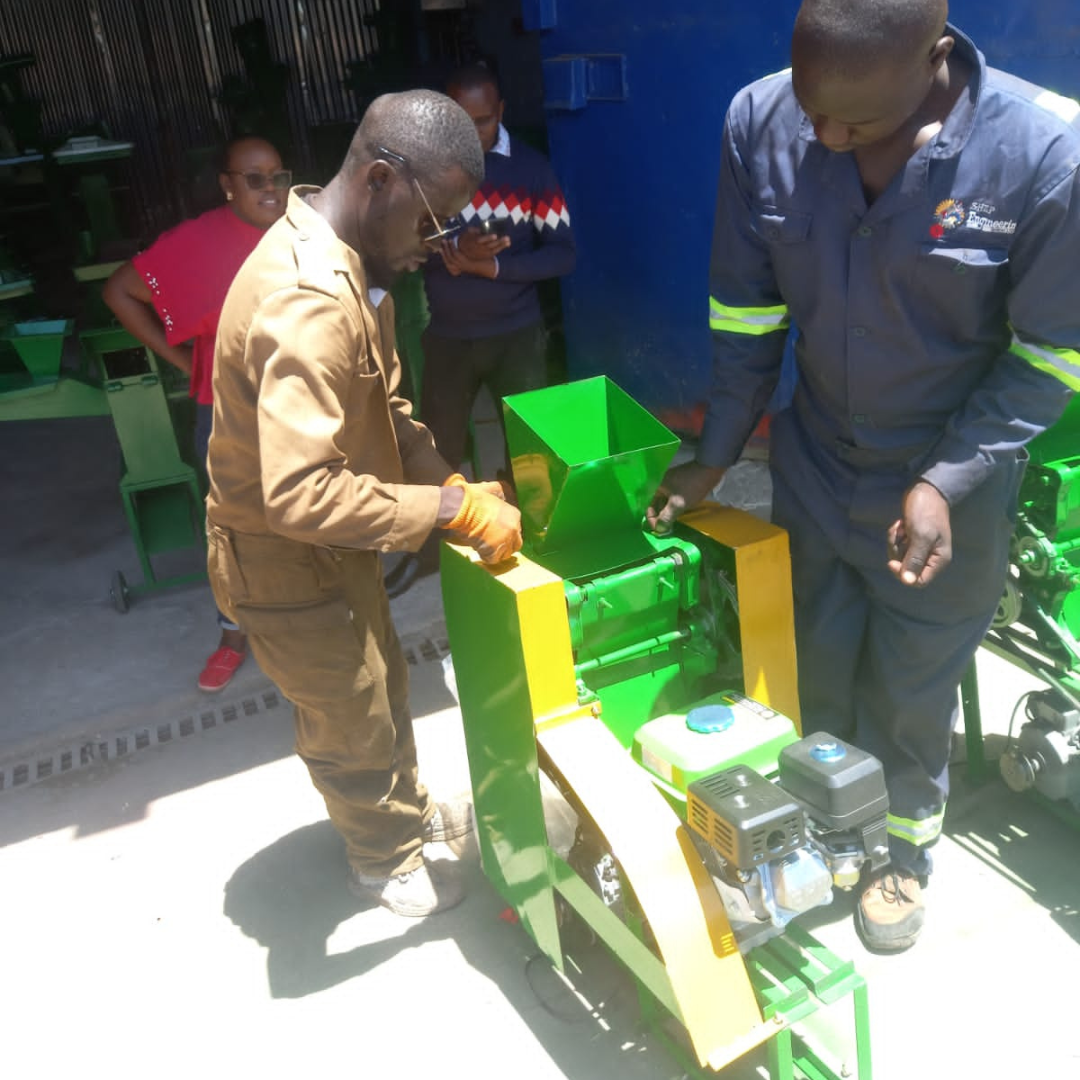

Wilson Odhiambo/IPS
NAIROBI, Apr 19 (IPS) – Kirinyaga University may have just breathed new life into Kenya’s ailing cotton industry as varsity dons develop a portable cotton ginnery.
For an industry that has been struggling to survive, this news came as a relief to cotton farmers, whose lives the invention is expected to change, and to a government pushing for job creation and self-reliance through manufacturing.
The project, funded by the government through the National Research Fund (NRF), is a portable cotton ginning machine aimed at addressing the problems faced by farmers, by providing them with a means to process their cotton directly on their farms and hence determine their own market prices.
The invention is the brainchild of four professors from Kirinyaga University: Dennis Muchangi, Grace Kiiru, David Kabata, and Agnes Mutiso.
The cotton processing industry has been struggling to recover for decades since its collapse in the 1990s, despite Kenya boasting of being a pioneer cotton miller and having the largest cotton gin in East Africa, Kisumu Cotton Mills (KICOMI).
The famous KICOMI, located in Nyanza province, has been a centre of controversy since its sudden shutdown in the 1990s. The mill, started in 1964, provided jobs for thousands of people as it was strategically located in the country’s largest cotton production region (served the western and Nyanza regions).
The result of this closure was a collapse in the country’s largest cotton production region as the farmers eventually opted for other means of survival. Today, the mill remains a shell of its former glory, despite repeated attempts by the government to revive it.
‘’From our research, we found out that the remaining cotton ginneries in the country were struggling to stay open due to the high cost of maintaining the ginneries, and the ones that were in operation were inaccessible by most cotton farmers across the country,’’ said Dennis Muchangi, project team leader.
‘’The closure of ginneries forced the remaining cotton farmers to rely on middlemen to find a market for their products, which meant exploitation and eventual loss of morale in cotton farming for most of them. Currently, they are forced to sell a kilo of grade 2 cotton at Ksh. 26, while grade 1 goes for Ksh. 52,’’ Muchangi told IPS.
Kirinyaga University’s invention has brought hope to cotton farmers, most of whom had ventured into other sources of income.
According to the academics, their invention will help the government boost the textile manufacturing industry while also creating blue-collar jobs such as artisans and mechanics, as the machine is easy to make with locally available material and the designs for its manufacture will be made open to the public.
‘’The portable ginnery is quite a simple machine with designs that are easy to understand for any local mechanic,’’ said Muchangi. This means that they can be built in any location.
The mini ginnery is a far cry from the large industry ginneries, as it is made out of simple scrap metal and other materials that can be found locally and assembled in any work shop.
‘’Another problem we noted among the available ginneries was maintenance delays, which led to a lot of stalling and shut downs. The big ginnery machines are expensive to maintain and too complex for local mechanics, which meant having to wait for months to get expert engineers from Nairobi to come and fix them. This was bad for the farmers and the cotton industry,’’ Muchangi explained.
‘’With our machines, farmers will no longer have to wait for experts and they can instead call any locally available mechanic.’’
Muchangi added that while the government is expecting to spend billions to revamp the stalled ginneries, their miniature machine requires less than Ksh. 100,000 (about USD 724) to build and even less to maintain.
Grace Kiiru, a project member, explained that the machine is also easy to use and, once taught, can be operated by anyone, both men and women. This, she said, will help empower women and the youth.
‘’While the larger ginneries require experts to operate, our machine is quite easy to learn and use and can be operated by anyone once they get the basic knowledge. This means that they can be operated throughout, thus boosting cotton production,’’ Kiiru told IPS.
The ginnery has also been designed to be able to accommodate farmers who live in areas with limited or no access to electricity.
‘’Given that most farmers are found in rural areas, characterized by limited or lack of electricity, we have made our machine in such a way that it can be operated manually or can be fitted with a petrol-powered generator for those who can afford it. We are also working on enabling it to run using solar energy,’’ Kiiru said.
The ginnery is small enough to be transported on a motorbike, making it accessible even in rural areas where motor vehicle transport may be a problem.
According to Kiiru, the machine has the ability to process up to 500 kg of cotton in a single day, which will make it quite profitable to farmers who can sell their products directly to the textile factories.
‘’Our intention is to help farmers determine their own prices by cutting out the middleman. By processing their own cotton, farmers will be able to sell their product for as much as Ksh. 200 (USD 1.51 per kilo up from the Ksh 25 (about USD 0.19) per kilo that they are currently being forced to accept,’’ she explained.
Kenya currently relies on cotton imports to supplement its textile industry, a fact that Saada Mangi laments has made the cost of some fabric high.
‘’Most clothing designers like myself import fabric from India due to the high cost and sometimes lack of material of the same quality locally. We are forced to sell our finished clothes at high prices, meaning we have to target certain clients who can afford them,’’ Mangi said.
‘’It is sad to see people prefer imported clothes and materials because they are more affordable compared to what we make locally. This is part of what kills our culture as a country,’’ Mangi said.
‘’Rivatex Textiles, Kenya’s largest textile factory, has had to rely on cotton imports from countries like Egypt to sustain its demands. Our machines will give farmers in the western and Nyanza regions a reason to resume cotton farming, which means no more importation and hence reduced prices on textile products,’’ Muchangi concluded.
IPS UN Bureau Report
Follow @IPSNewsUNBureau
Follow IPS News UN Bureau on Instagram
© Inter Press Service (2024) — All Rights ReservedOriginal source: Inter Press Service






